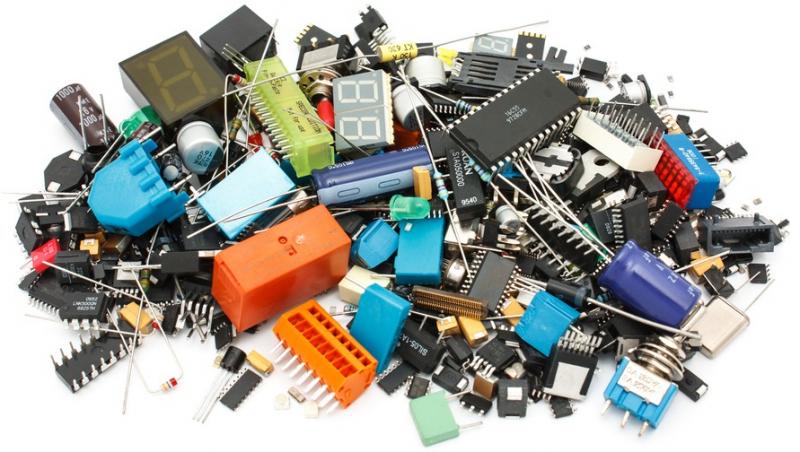11: ELECTRONIC EXPERTISE
The Importance of Electronic's expertise (partially reprinted from Jan., 1982 REBEL)


A very good stock of electronic and electrical components and equipment is much desired for survival groups of any size that have on board an electronics expert. I rate electronic expertise just below medical and commando expertise and just above mechanical expertise for group survival.
Electronic sensors and sentries can be built that are more sensitive than humans are continuously alert. They do not entirely replace human guards but, when properly designed and used, are a tremendous saver of manpower and aggravation. They can be battery or solar powered. Complex MOS type circuits now exist that draw only nano- or microamps of current and will last six months to a year on a single 9 volt radio battery. Electronics expertise is required to operate, maintain, and repair communications equipment. Electronic methods can be devised to confuse, rout, and destroy an enemy, and to trigger booby traps and bombs. If power is available, computer expertise can be used to quickly analyze complex survival situations for intelligent decision making.
I feel that if your survival group does not have an electronics expert on board, you are probably not adequately prepared for survival! Those expert in electronics, from my experience, aside from this expertise, are also very valuable because they are creative, intelligent, resourceful, skilled with tools, and hard-working. Be careful when selecting an electronic expert.
Many people profess electronics expertise when they only have a passing knowledge of electronics, have a good theoretical background but little or no hands-on experience, or are experts in some very limited area of electronics.
While the amount of electronics components is certainly in the 100,000s and no one could possibly master 1% of all of the available electronics technology, your expert should be highly skilled and experienced (particularly circut realizations) in both linear and digital circuitry with at least passing familiarity with thousands of components. Some microprocessor and software experience is desired. And, of course adequate parts, equipment, and books.
For those of you wishing to learn about electronics, first go to your local Radio Shack, and pick up a copy of Getting Started in Electronics, any books from their Understanding.... series that you might find interesting, and all of the Engineer's Mini-Notebook series. All of this will set you back anywhere from $10 to $50, depending on far you want to go with it, but those books will give you an excellent start. You should also pick up a copy or even a subscription to Radio-Electronics magazine, which carries monthly electronics project articles, information, and advertisements to parts suppliers. Then, with the information in those book, buy some parts, and start building some simple projects. You might also want to take a course in electronics at your local college, or adult continuing education classes, and if you're still in high-school, your school might have an electronics class, or a "tech center" where you can attend; however a lot of those classes can contain a lot of theory, which while important is too overly stressed. All the theory in the world won't help you when you need to fix something in the field with minimal parts support, or need a quick and dirty solution to an electronics problem. That sort of expertise comes from hands-on experience with a good technician. Make sure your class covers a lot of the practical aspects. If you're still in high school or college try to get a part-time job in a TV repair shop. Not only will you get paid, you'll also get an invaluable education in practical electronics. Don't worry if you're bad in Math. Mathematical proficiency for electronics is, for the most part, a myth, and many math geniuses I knew sucked at electronics, and many good technicians I knew of were only average at math. For the street-tech, hands-on style electronics; you'll get by with only an average proficiency in math.
Start with the basics, and try to learn a little about everything. Once you mastered that, then you can begin to specialize, although too much specialization is a bad thing. Try to keep your knowledge as broad as possible. If you decide to specialize a little, try to do it in a field that has a large potential for street-technology, as it will greatly enhance your chances for survival having a marketable needed skill to fall back on in hard times. The wizards of old were held in awe and respected because of their supposed special knowledge; with many people coming to them for assistance in matters they were unable to handle. Being proficient in practical electronics can make you a wizard of the 21st. century, and if anything else, will at least enable you to make a comfortable living. The best fields for specialization are telecommunications, RF technology, and digital electronics/computers. These fields have since their inception have totally integrated with society in a very short period of time, and will continue to be a major element in it.
Good Magazines:
Radio Electronics
Computer Craft
Circuit Cellar Ink
Popular Electronics
Nuts and Volts
QST
73 Magazine
CQ Magazine
























